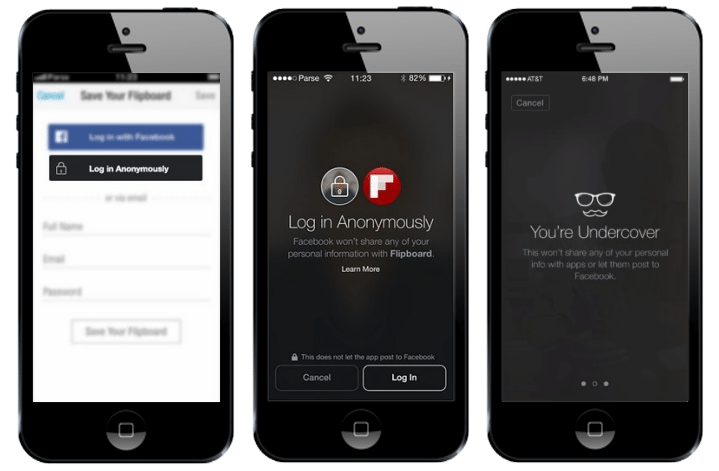
Facebook Anonymous Login
We are open to share information about our private life with people on Facebook that we know but we tend to be not so open when it comes to offering our identity and credentials when we login to 3rdparty applications, we do not trust.
This issue came into the giant’s social network attention which plans to focus on improving the way users login to 3rdparty applications by giving more privacy controls on the web as well as on mobile devices.
ANONYMOUS LOGIN
On Wednesday, in San Francisco during the Facebook’s F8 developer conference, CEOMark Zuckerberg announced a new tool for Facebook that will be available when youlogin: “Anonymous Login”. Facebook users waited a long time for something like this, a tool that lets them to sign-in into applications and websites and have their identity protected.
“Today, we want to do more to put control and power back into people’s hands,” Zuckerberg said at the conference. “Up until now, your friends have been able to share your data via using apps. Now we’re changing this, so everybody controls how their data is shared with apps, even ones others are using.”
USERS’ TOTAL CONTROL OVER APP PERMISSIONS
Also, in the next few months, a new feature will be available that allowing users to control whichinformation they are comfortable to be made public when it comes to3rd party applications. This feature goes both ways as Facebook plans to limit the content that can be read by 3rd party applications when users share information with their friends.Also, due to the privacy feature, the users can decide if third-parties apps can access or not their information when one of their friend uses the Facebook login.
“With the new Login, I can sign in on my own terms. I can uncheck boxes I don’t want to share. We’ve heard very clearly about how you want more control with how you’re sharing with apps, and this new Login gives you that control.”
Another great thing about this new feature is it’s malleability and it’s user friendly interface. Let’s say that a user decides that a Facebook application can be trusted and he would like to make some changes regarding it. All he has to do is to connect to his profile and allow permission for the application to access parts of the account such as the posting of automatic status updates.
Facebook also paid attention to the application permissions dashboard which will be redesigned in order to make it easier for the users who sometimes tend to get worried when it comes to managingnew features.
“At Facebook, we serve a lot of groups, including developers, advertisers, and employees—but the most important group we serve is the people who use our products,” Zuckerberg said. “And we must always put those people first. People want more control over how they share their information, especially with apps, and they want more control how apps share their data.”
PLANS FOR ADVERTISERS & APP DEVELOPERS
During his statement towards the developers, Zuckerberg explained that this tool comes as a necessity. He highlighted the importance of feeling free and comfortable when it comes to signing into new applications. While sharing his vision he also tries to encourage users to explore more of what the virtual environment has to offer them.
“By giving people more power and control, they’re going to trust all the apps that we build more, and over time use them more. And that’s positive for everyone,” said Zuckerberg.
Facebook announced a new mobile AD Product specially for the advertisers and application makers under the name “Facebook Audience Network”. This will allow application developers to insert ads from Facebook’s list of advertisers, which consists now of more than 1 million companies. It is now open for registration and it will be beneficial for everybody as the revenue will be splited.
This way, Facebook tries to make the users feel more relaxed and safe when they are sharing personal information over the web. The company’s attitude is much more important as it comes now, when everybody is concerned about privacy and security breaches.
Anonymous Login is tested for now by Facebook engineers with just a couple of different developers. Availability for all the developers will come in the following months, after the testing period is finished.

